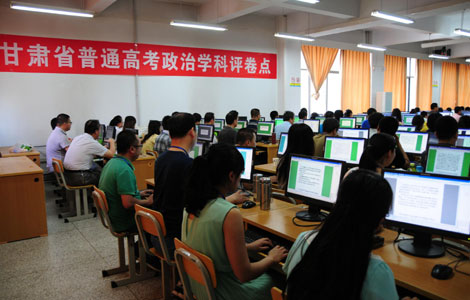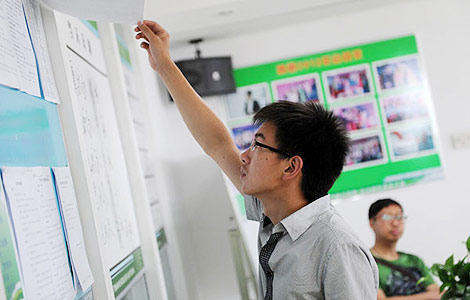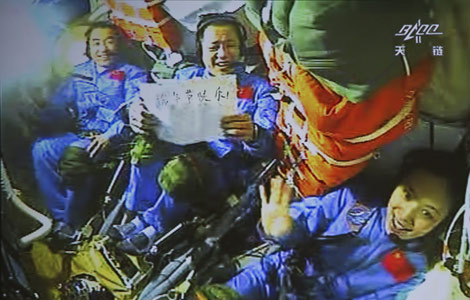
Hope for negotiations despite the ongoing dispute over solar panels
China and the European Union may launch negotiations on a bilateral investment treaty, despite their ongoing dispute over solar panels.
Zhang Haiyan, a professor of EU-China investment and trade at Antwerp Management School in Belgium, said: "Both Brussels and Beijing have already signaled their eagerness in kick-starting such an investment negotiation but it is not easy to forecast how soon it will be concluded."
EU foreign ministers have put the possibility of an agreement between Beijing and Brussels on the discussion agenda at Friday's meeting of the Foreign Affairs Council in Luxemburg.
At the meeting, European Commission free trade negotiators have a mandate to negotiate an agreement between Brussels and Washington on combining a free trade market of 800 million people.
The foreign ministers of the 27 EU member states have also discussed the solar panel anti-dumping dispute, with Beijing and Brussels striving to reach negotiated prices for China's solar exports.
Brussels accuses China of dumping the panels on the EU at reduced cost, claiming Chinese manufacturers are receiving unfair government subsidies.
If no compromise is reached by Aug 6, the European Commission will raise the temporary anti-dumping penalty to 47.6 percent from 11.8 percent.
Zhang, a long-time observer of China-EU economic and trade relations, is certain any talks will turn into a marathon wrangle.
He says Brussels may put non-commercial items such as sustainable development, social responsibility and human rights on the negotiating agenda while trying to gain more market access in China. In turn, Beijing will ask Brussels to accept equal investment status for its State-owned enterprises, which are increasing their presence overseas.
"All these are bones of contention and it is not easy to find convergence," Zhang said. "However, any talks should be easier than those between Beijing and Washington."
Zhang said Beijing has shown a realistic and flexible attitude over bilateral investment agreement negotiations with Washington and Brussels. China and the US concluded their ninth round of talks this month although the negotiators have not achieved a basic framework for agreement so far, Zhang added.
New attempt
Glyn Ford, a former member of the European Parliament, said he is looking forward to Beijing and Brussels taking a constructive attitude to solving the anti-dumping problem and preparing for a fruitful summit in November.
"This should be a tone-setting summit for both Brussels and Beijing and I hope it will be a fruitful, not soured, one," Ford told China Daily in an interview. He hopes both sides can kick-start investment agreement negotiations at the summit.
With Brussels negotiators obtaining a mandate to talk to Washington on the Transatlantic Trade and Investment Partnership (TTIP), observers say this is another attempt by old powers to contain emerging economies, such as China and Russia, following Washington's strategy of negotiating with China's neighbors on the Trans-Pacific Partnership (TPP).
Brussels says its trade deal with the US is expected to boost the EU economy by 0.5 percent, or 119 billion euros ($158.7 billion) annually, due to the removal of tariffs and red tape.
But Ford said, "I am thinking both Brussels and Washington should consider engagement with China, instead of containment."
Suggesting that China, the US and EU sit down to talk about global power balances, Ford said Washington's TPP initiative includes geopolitical and containment considerations because it aims to form a free trade bloc with China's neighbors.
Pierre Defraigne, executive director of think tank the Madariaga-College of Europe Foundation, based in Brussels, warned that US use of the TTIP and TPP to contain China's strategic rise by controlling its export-led growth will reopen competition.
Meanwhile, a shift from a multipolar world to a bipolar one based on economic competition will eventually lead to strategic confrontation, he said.
Christopher Lewis, Senior Fellow of the Schiller Institute in Germany, said the Obama administration's foreign policy is aimed at building alliances in Asia to try to counter the influence of China. The TTIP, is only a further attempt to unify two economic systems under the banner of liberalization and global governance, he said.
However, Huo Jianguo, president of the Chinese Academy of International Trade and Economic Cooperation, does not see the TTIP as "a contrived containment" of China.
But he foresees a potential rise in trade protectionism and collective sanctions towards China, in the name of equal market access, a level playing field and intellectual property rights. He also said it is not easy to produce immediate, tangible results, as Europe and the US have varying rules and interests in comparatively advantageous sectors.







